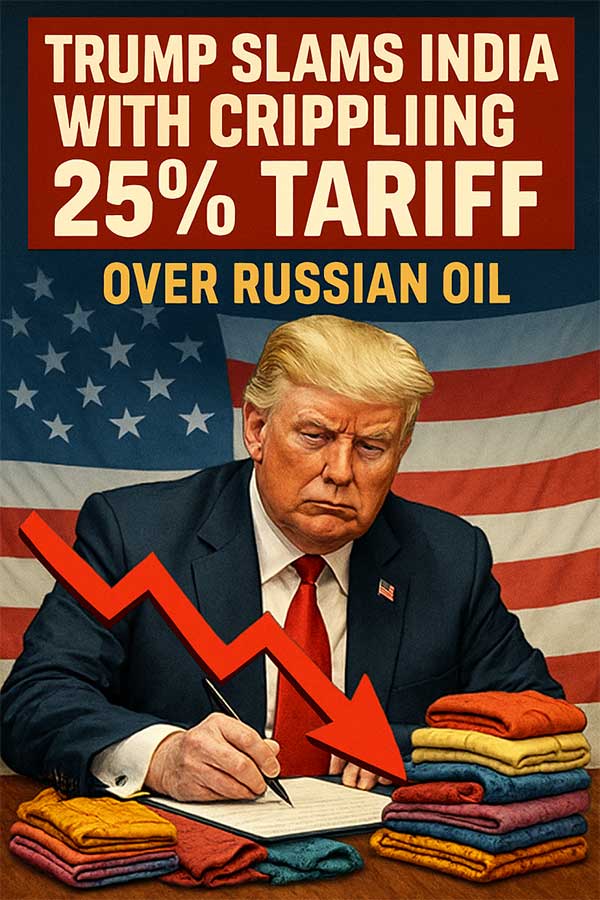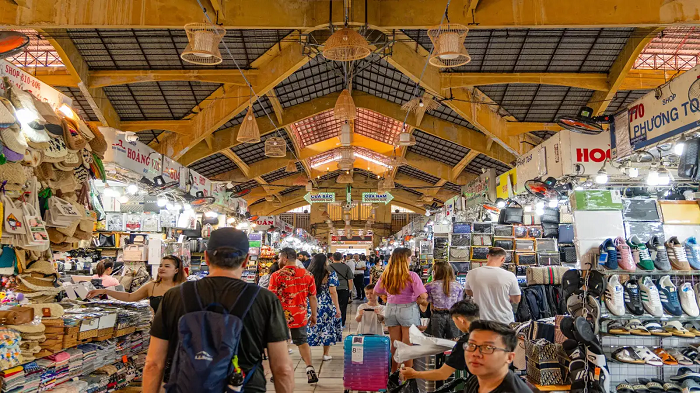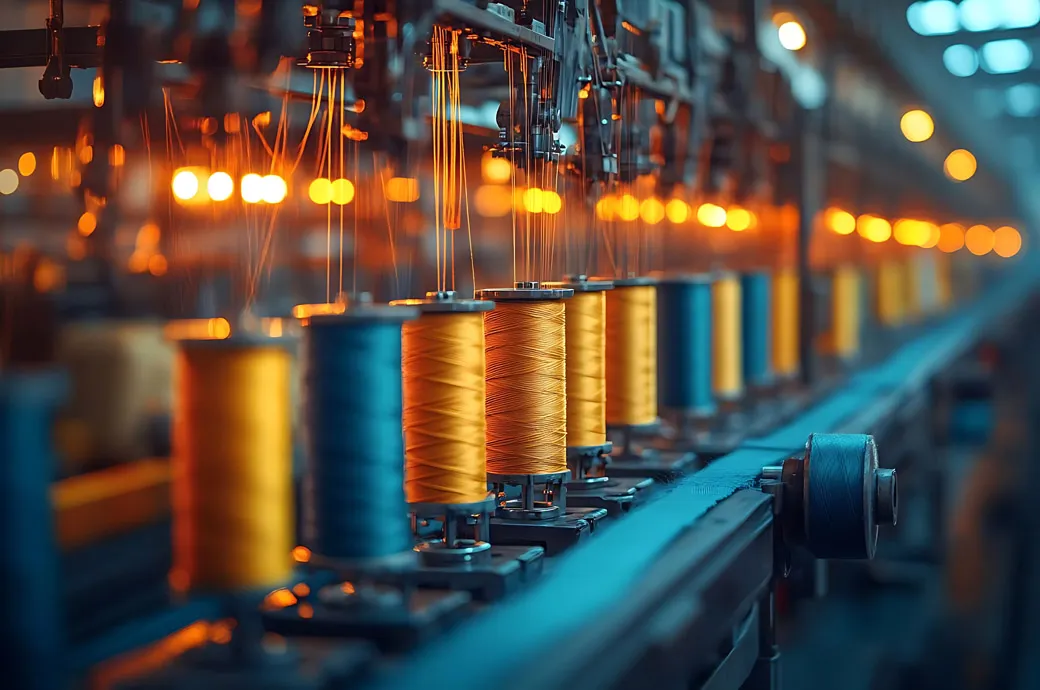In a transformative move, Nan Yang Textile Group, a leading garment specialist based in Bangkok, has experienced a paradigm shift in its production planning and control with the adoption of Coats Digital’s FastReactPlan solution. Since integrating the system in 2019, Nan Yang has slashed its planning time from three days to just one, marking a remarkable 66% increase in planner efficiency. Moreover, the On-Time Delivery Performance (OTDP) has surged by 10%, indicating a significant improvement in meeting production timelines.
Before implementing FastReactPlan, Nan Yang faced challenges with discrepancies between production plans and actual outputs, leading to disruptions and delays. The reliance on Excel spreadsheets proved inefficient, prompting time-consuming meetings and corrections. The shift to FastReactPlan eliminated the need for multiple spreadsheets, providing a centralized, digitized source for critical planning information. The enhanced visibility has fostered seamless collaboration, enabling swift management of diverse orders and change requests.
Kanjana Meim, Production Planning Control Department Manager at Nan Yang, praised the system's ability to translate complex data into a visually intuitive plan. FastReactPlan's color-coded identification of late orders and material shortages streamlines decision-making, and its efficiency function tailored by product type enhances planning precision.
Coats Digital's FastReactPlan has proven instrumental in Nan Yang's strategy for growth, empowering planners to anticipate challenges and optimize operations. This success positions Nan Yang as an industry leader in innovative textile and garment solutions, with a commitment to ongoing digitization. As a core component of Coats Digital’s Manufacturing Solution Suite, FastReactPlan continues to be a driving force behind Nan Yang's efficient and responsive production processes.
US’ textile and apparel (T&A) imports rose by 1.5 per cent in November 2023 as against the corresponding month previous year, as per a report by the Office of Textiles and Apparel of the US Department of Commerce (OTEXA).
The country’s imports from Mexico surged by 79.8 per cent to 443.9 million SME during November 2023 as against 246.9 million SME in November 2022, as per OTEXA.
Imports from China increased by 9.5 per cent to 2.62 billion SME this November from 2.4 billion SME in November 2022. Shipments from Vietnam rose by 9.0 per cent to 445.3 million SME from 408.7 million SME in 2022.
US’ imports from India rose by 3.9 per cent to 13.2 million SME in November 2023 compared with 686.6 million SME in November 2022. On the other hand, imports from Pakistan dropped by 6 per cent to 265.3 million.
US’ imports of textile and apparel products from Turkey also dropped by 24.6 per cent to 458.6 million SME in November 2023 as compared to 608.9 million SME in November 2022. Imports from Egypt dropped by 21.7 per cent to 19.0 million SME as against 24.3 million SME in November 2022.
Shipments from Israel dropped by 5.6 per cent to 24.2 million SME in November 2023 while imports from the Czech Republic fell by 2.3 per cent in November this year from 178.1 million SME in November 2022 to 174.0 million SME in November 2023.
As demand for textile exports in Europe and the US market continues to wane, India plans to divert its exports to other countries like Australia and the UAE.
Rachana Shah, Textile Secretary says, the Central Government is exploring new markets for its textiles besides consolidating its current ones. It aims to sign new FTAs with Australia and UAE besides boosting exports to Japan and Korea.
The centre is also negotiating FTAs with the United Kingdom and some other West Asia Countries. These FTAs will help the centre boost exports to $100 billion by 2030-end, adds Shah.
However, factors such as competitiveness, logistical costs and fragmented value chains may affect these exports, rues Shah. She recommends the introduction of more schemes like the PM Mitra and Production Linked Incentives (PLI).
The PM Mitra scheme will enable the government to invest Rs 500 crore towards setting up a textile park and Rs 300 crore to help it achieve the required investment target of Rs 70,000 crore, states Shah.
On the other hand, the PLI scheme for textiles will help attract new investments worth Rs 19,000 crore in the five years. The scheme also aims to achieve a cumulative turnover of Rs 3 lakh crore and create employment opportunities for 7.5 lakh people in the sector, adds Shah.
One of the top five home textiles exporters in Pakistan, Liberty Mills is showcasing its initiatives to reduce raw material and energy costs, and carbon footprint at the ongoing Heimtextiles 2024 expo being held at Frankfurt, Germany.
Currently exporting home textiles and apparel fabrics worth $275 million annually, Liberty Mills has also teamed up with a strategic partner in the UK on a circular textiles production cycle.
The company aims to become one of the top-rated green manufacturing facilities in the World. It claims to have set up the world’s first integrated, hybrid clean energy production facility combining solar power and wind power. The company currently supplies 100 MW of energy to the national power grind.
Taimur Mukaty, CEO, opines, adopting sustainable production methods is as important as manufacturing sustainable products. Today, customers prefer to buy products from companies complying with the UN Science-based targets for carbon neutrality.
Being held alongside GAPEXO from January 11-14, 2024 in Dhaka, Bangladesh, the Garment Technology Bangladesh (GTB) 2024 showcases the latest technological innovations of over 200 avant-garde companies.
The innovations being showcased at the trade show span the entire spectrum of garment manufacturing from stitching to software solutions. The event helps boost the productivity of Bangladesh garment manufacturers and other players besides allowing them to cut costs, accelerate turnaround times and enhance sustainability.
Being held across 15,000 sq ft in ICCB, Dhaka, the expo is attended by 10,000 visitors including garment brands, manufacturers, designers, export houses, dyeing and finishing companies, consultants, textile manufacturers, textile printing houses, trade body representatives and buying houses, etc.
The B2B technology trade show is being attended by renowned exhibitors across the textile and apparel value chain such as Jack, Juki, Duerkopp Adler, Ngai Shing, Aamra, Pacific Associates, Richpeace, INL International, Focus Garment Tech, Sakho, IMB, Euromac, Zoje, etc. It pays a tribute to the industry’s relentless pursuit of excellence.
Spanish fast fashion brand Mango plans expand its operations with the opening of 500 new stores by 2026.
The brand will open these stores across key markets including the US, Spain, France, Italy, the UK, India and Canada. Of the planned 500, Mango will open 40 stores in the US by the end of this year.
Additionally, Mango also plans to expand its board of directors from four to nine members. The brand plans to appoint, Margarita Salvans as the new Chief Financial Officer of the company.
Launched in 2021, Mango’s homeware brand, Mango Home also plans to open stand-alone stores in Barcelona and Madrid, along with launching an online presence in Turkey. The retailer will rope in Eva Cárdenas, International CEO,
Zara Home, as external consultant to drive growth for Mango Home.
Founded in Barcelona in 1984, Mango is currently present in over 115 markets. The brand expects to sales of over €3 billion in FY 2023 financial year. It will release its strategic plan for 2024-26 detailing objectives for international expansion, online sales, etc.
Gap Kids, the children's wear line of US-based casual wear brand Gap, has inaugurated an exclusive outlet in Hyderabad's Sarath City Capital mall.
The store, characterized by an inviting open facade and adorned in bright white with navy blue accents, boasts a distinctive interior featuring Gap's iconic logo sweaters.
To celebrate the launch, enticing promotions, such as a Rs 1,000 discount on signature colorful logo sweaters, greet customers at the entrance. Catering to both boys and girls, the store offers a diverse range of toddlers' and children's clothing and accessories collections.
Reliance Retail facilitated Gap's entry into the Indian market in July 2022 through a strategic franchise agreement. This move marked Gap's return to India after discontinuing a previous partnership with Arvind Fashions in 2020.
With existing stores in Mumbai, Guwahati, Pune, and Amravati, Gap Kids continues to expand its presence in the country through exclusive outlets and various popular e-commerce platforms such as Tata Cliq, Flipkart, Amazon India, Ajio, and Myntra.
Devan Chemicals is set to showcase its cutting-edge sustainable textile finishes at Heimtextil 2024, emphasizing innovation in response to the growing demand for sustainability and transparency in the corporate sector. Attendees are invited to explore Devan's booth in Hall 11.0, booth A21, where the spotlight will be on the latest advancements in their R-Vital NTL Range and Thermic High Cooling technology.
The R-Vital NTL Range offers a boost to textile manufacturers with active, natural ingredients like Chamomile oil and Arnica Montana, known for their positive effects on the body and mind. Devan introduces R-Vital NTL Regenight, a groundbreaking technology in collaboration with Lucas Meyer Cosmetics, designed to enhance sleep quality and nighttime skin recovery using upcycled Australian Tea tree oil.
The range includes Chamomile oil, celebrated for its moisturizing and soothing properties, and Arnica Montana, known for its potent healing attributes. Furthermore, R-Vital NTL Warming technology ensures a cozy sleeping experience, promoting physical and emotional well-being.
Devan will also unveil Thermic High Cooling technology, employing reactive microencapsulated Phase Change Materials for an optimal and refreshing sleeping climate. This innovative formulation, with a Bio-based version available, provides approximately 30% more cooling than standard PCM formulations, promising a longer, healthier, and more comfortable sleep.
Scoop, the renowned international trade show, is set to feature an impressive array of Spanish designers at Olympia West, Kensington, from the 11th to the 13th of February 2024. The event, curated by Founder and Managing Director Karen Radley, has expanded its offerings to encompass a diverse range of international talents.
The spotlight will shine on Spanish creativity, with designers like DR BLOOM bringing a joyful and sophisticated limited edition collection of womenswear and accessories, characterized by bold colors and unique prints. YERSE, originally a knitwear brand, focuses on contemporary wardrobe essentials and statement pieces.
TANAVANA, blending cultural references with contemporary flair, presents a bold collection rooted in exceptional craftsmanship. The New Society, starting as a childrenswear line, has seamlessly incorporated womenswear into its identity, showcasing Spanish heritage through chic designs. Nice Things by Paloma draws inspiration globally to create a unique womenswear collection, blending elegant Spanish style with a cool vibe.
Noteworthy is the inclusion of sustainable footwear brand Nemónic, featuring Boho-Chic and Cowboy trends, and UNOde50, crafting iconic handmade jewelry for the modern sophisticated woman in Madrid.
Recognized as a must-see on the international trade show circuit, Scoop will unveil around 250 designers, offering a meticulously edited lineup of premium women’s fashion, luxury home, beauty, lifestyle, and men’s collections at Olympia West in February. Simultaneously, Pure London x JATC will captivate attendees with its unique offerings on the same dates.
Tidjane Thiam, recently elected President of the Democratic Party of Ivory Coast, has resigned from his role as Director to the Chairman of Kering’s Board of Directors.
This move is attributed to Thiam's need for time to focus on his political commitments. Serving as an independent Director since June 2020, and Chair of the Audit Committee, Thiam's departure prompts the Board, led by François-Henri Pinault, to express gratitude for his contributions.
The Appointments and Governance Committee will initiate a succession process in the upcoming weeks. While Thiam's resignation prompts changes, current committee compositions will be reviewed upon future appointments.
Kering, a global luxury group, shapes iconic fashion houses like Gucci and Balenciaga, prioritizing creativity to redefine luxury responsibly. With over 47,000 employees, it reported €20.4 billion revenue in 2022.
- 1
- 2
- 3
- 4
- 5
- 6
- 7
- 8
- 9
- 10
Elite consumers power luxury market amid global slowdown, highlights BCG Report
As the global luxury industry confronts its first major slowdown in over a decade, a quiet but powerful transformation is... Read more
Trump's Tariff Shock: Indian apparel industry faces exodus as US buyers demand r…
In a dramatic reversal of fortune, India's apparel industry, once poised for growth amid a changing global trade landscape, now... Read more
From Texas to Dhaka, cotton’s route rewritten by trade and tension
In the sprawling fields of West Texas and the ginning factories of Gujarat, tremors of geopolitical unrest are being felt... Read more
Trump slams India with crippling 25% tariff over Russian oil, Indian textile ind…
In a dramatic escalation of global trade tensions, U.S. President Donald J. Trump today signed an Executive Order imposing an... Read more
Circularity in fashion hits a plateau, reveals Kearney's 2025 index
A new report from global management consulting firm Kearney suggests that while circular fashion has become a mainstream ambition, the... Read more
From Seoul to São Paulo: How Gen Z is driving a genderless fashion future
From the minimalist ateliers of Copenhagen to the neon-lit youth districts of Tokyo, unisex fashion is no longer a fringe... Read more
Time to Lead, Not Follow: Textile industry must become a national priority, says…
In a visionary address at the Textile Leaders’ Conclave 2025 in Ahmedabad, Kulin Lalbhai, Vice Chairman of Arvind Ltd., called... Read more
Fashion flows shift, Vietnam and UK drive growth as others stall
The global apparel trade and retail sector continues to evolve, balancing between post-pandemic recovery, macroeconomic uncertainties, and changing consumer behavior.... Read more
Inflation, wages, and green mandates, what’s unravelling Türkiye’s textile domin…
Once celebrated as a textile stronghold bridging East and West, Türkiye’s garment and textile sector now faces numerous crises. From... Read more
India's Textile Exports to US Face Tariff Shock: What gets hit, what holds groun…
In a significant trade development, the United States has imposed a 25% tariff on all Indian imports, effective from Aug... Read more












